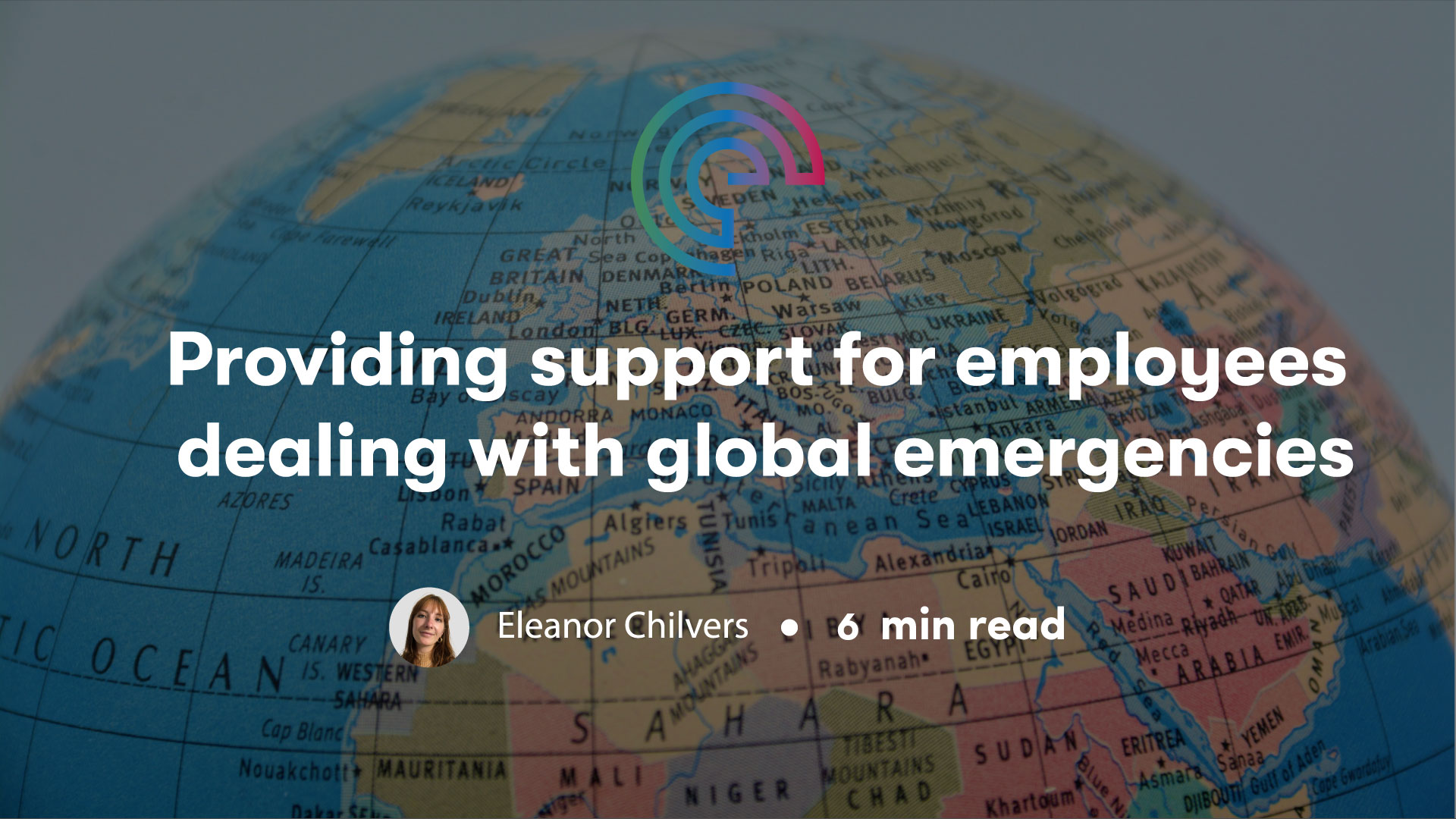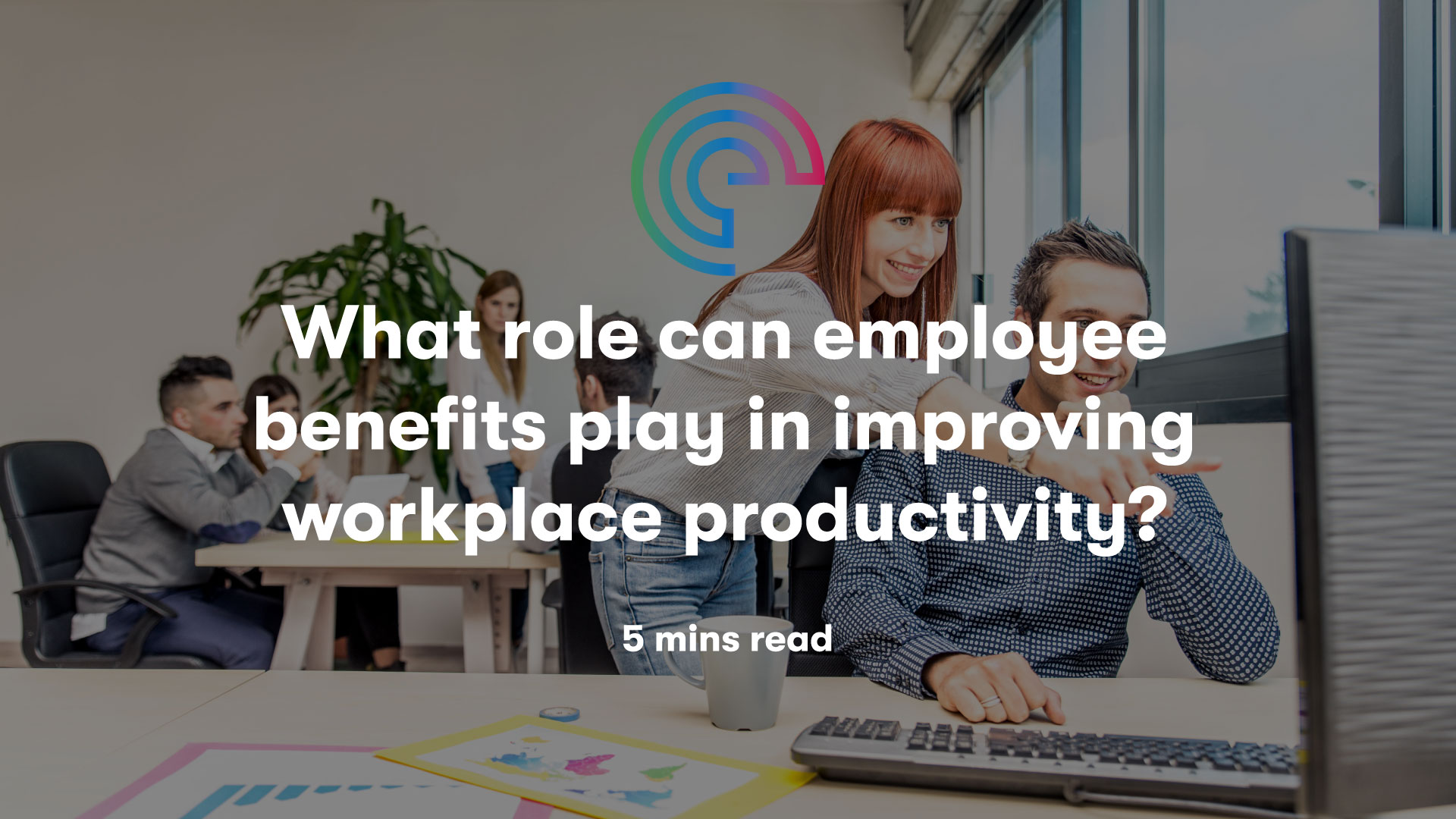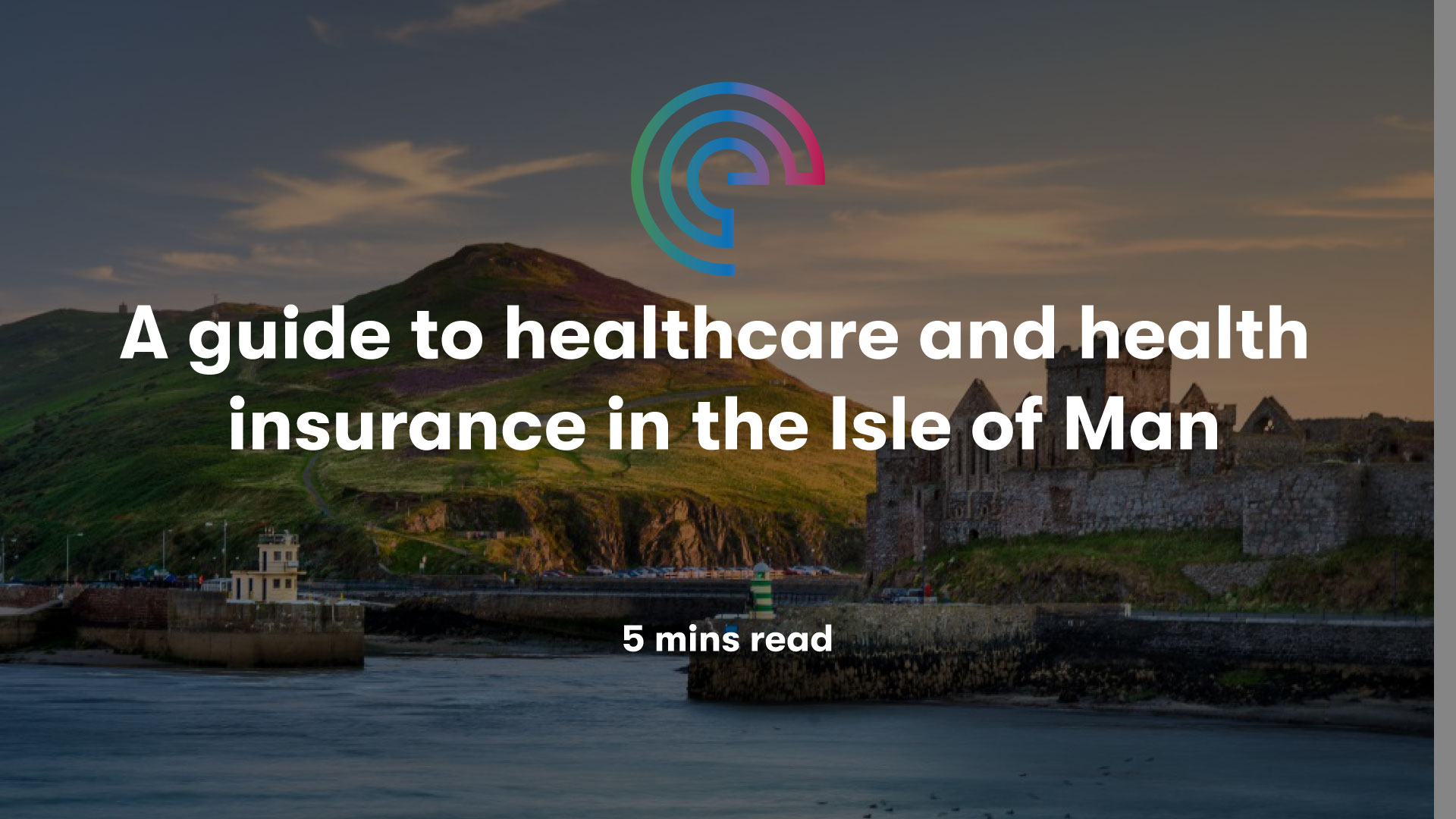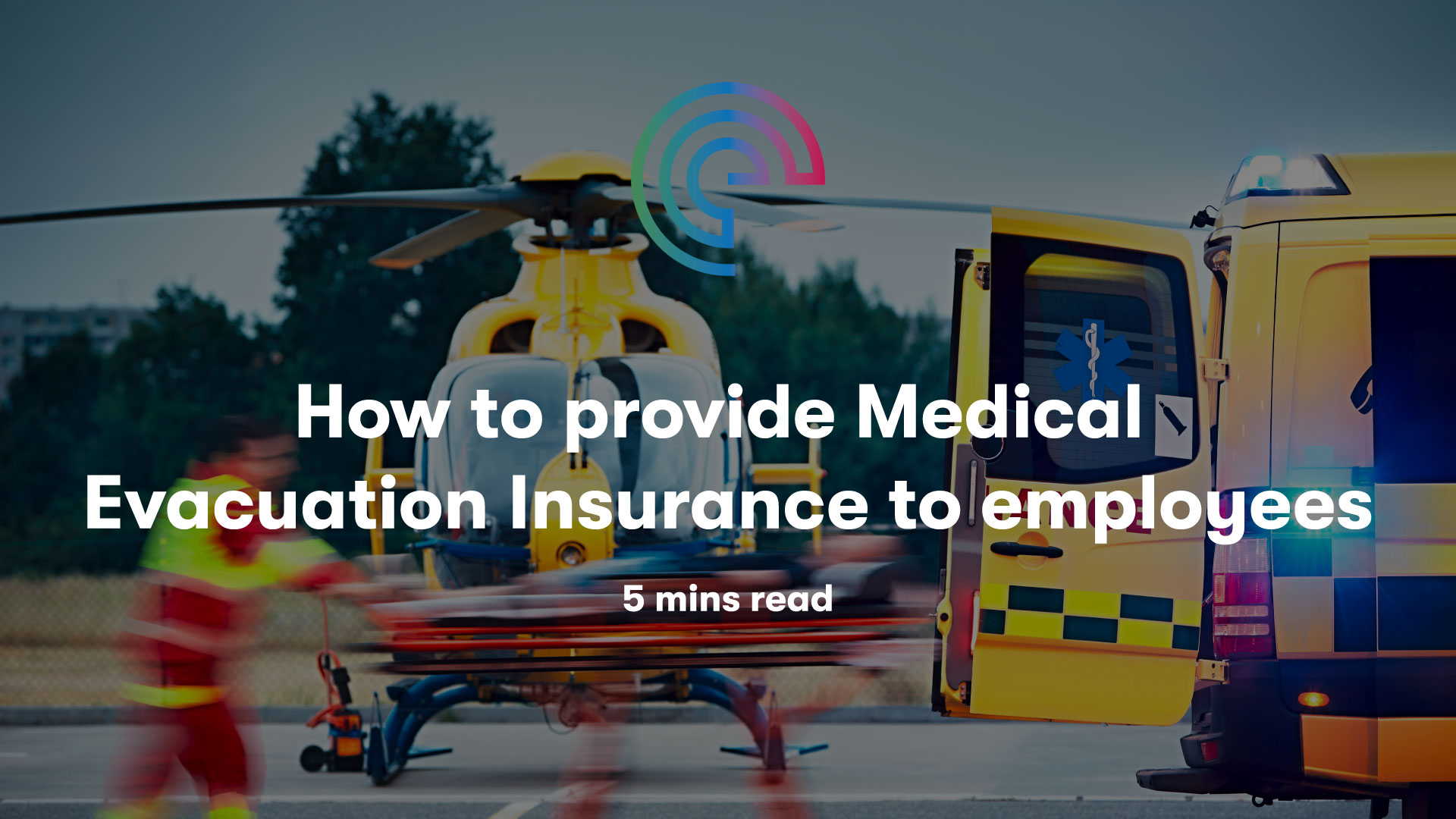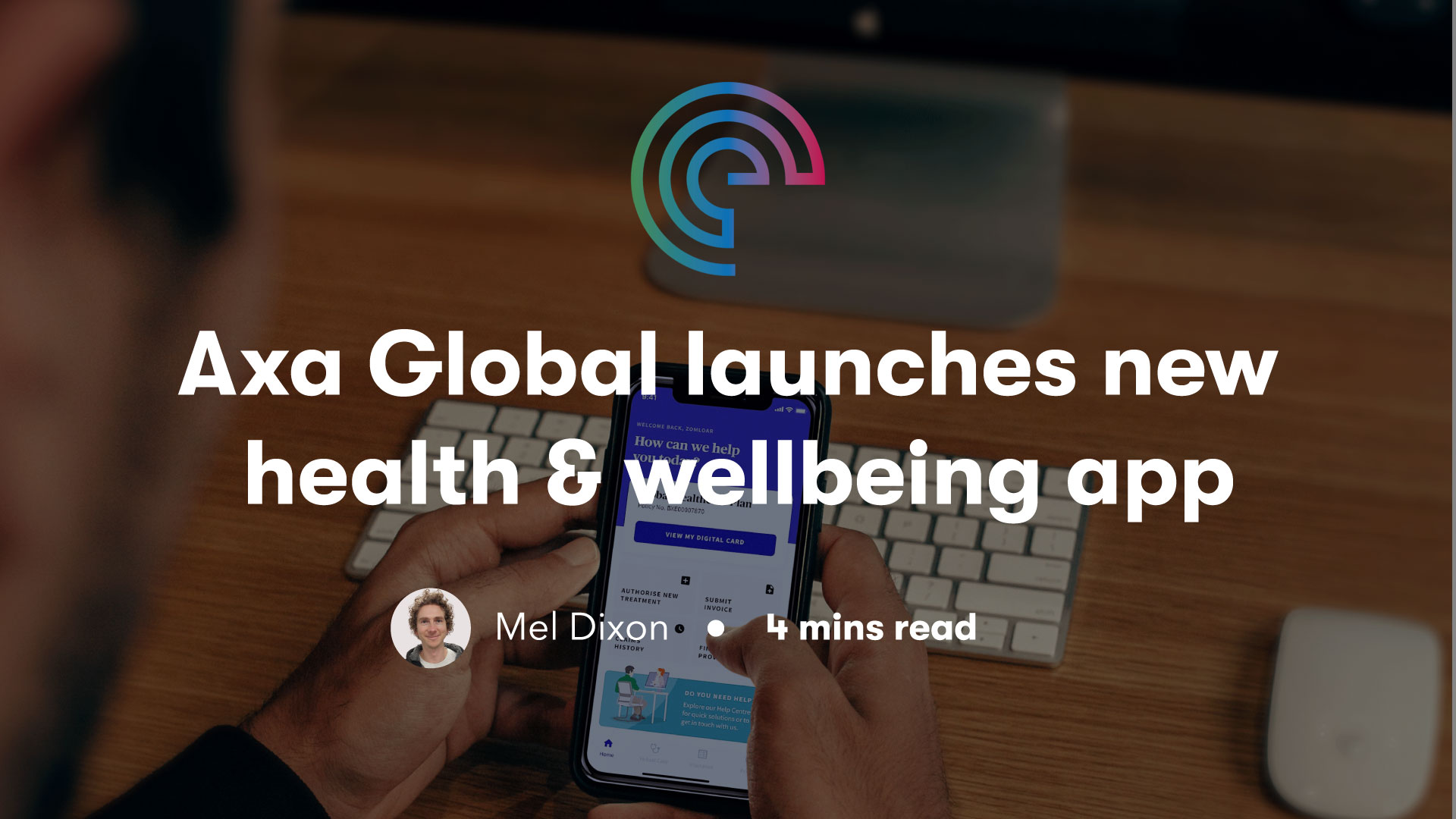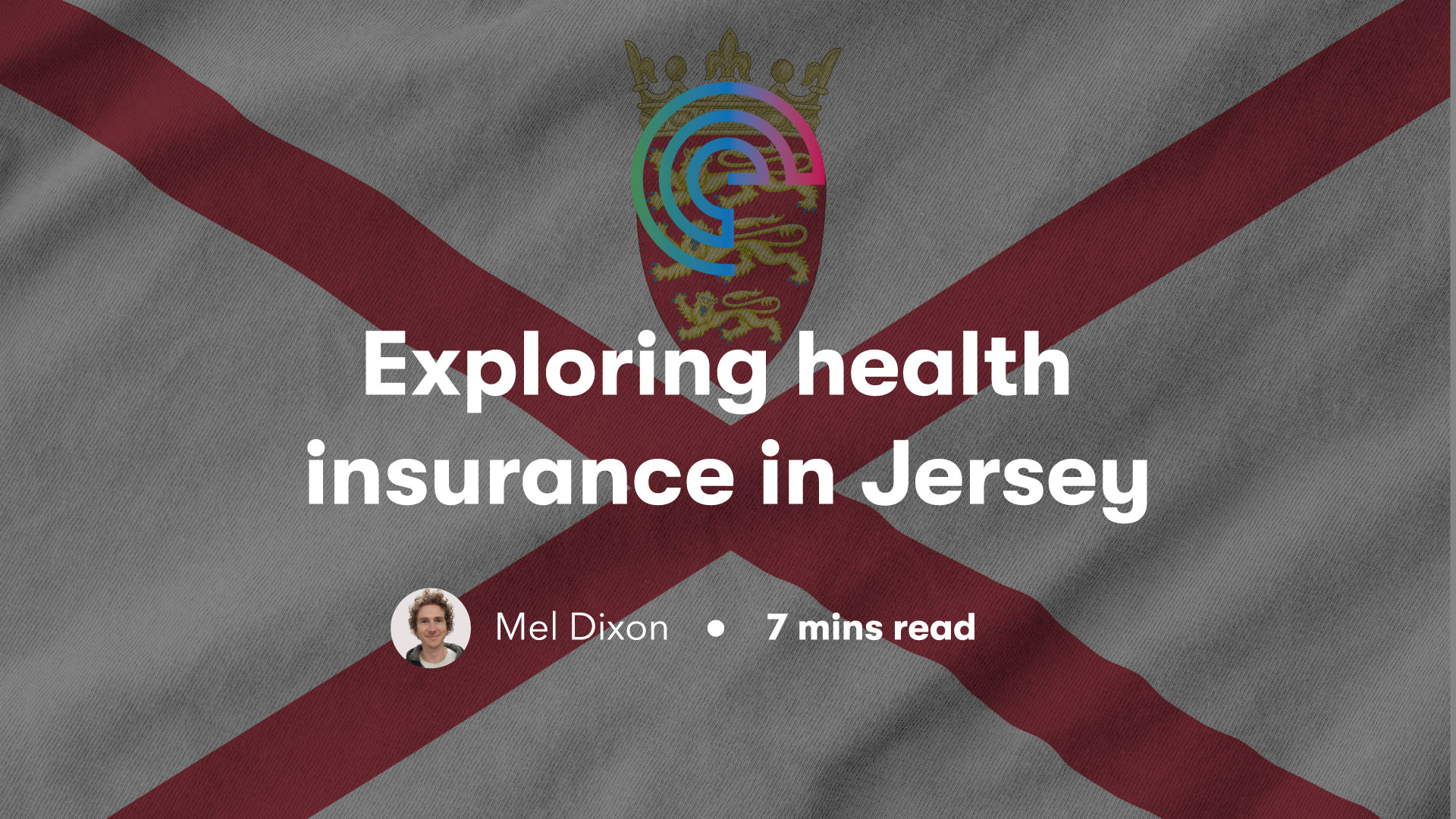The growing trend in employing global remote workers means that employer duty of care is increasingly a worldwide exercise for businesses of all sizes.
In a volatile world, the issue is even more pressing to address and increasingly challenging to navigate.
In recent years we’ve had wars in Yemen, Ukraine and the Middle East; a global pandemic; natural disasters; global inflation and energy shortages.
So it’s hardly surprising that we’ve experienced an increase in queries related to the issue of global emergencies and specifically Employee Assistance Programmes and how they can help in such scenarios.
In this blog post we cover:
- How global emergencies and crises impact business and employees
- Key strategies and employee benefits that will make a difference to staff
- How Engage helped a client during the Covid-19 pandemic
To help explore this subject, our International Senior Manager, James Carrick provides his perspective drawing on knowledge and expertise gained from working with global clients and account management over the last 16 years.
Need help supporting your global workforce? Get FREE expert advice from our consultants on 01273 974419 or email [email protected].
How global incidents impact business and employees
“With companies employing global workforces, there are more possibilities for staff to be caught up in natural or man-made disasters. Staff need the right support to be able to do their job effectively. Essentially, they need to have something in place to not only reassure employees but also to offer action if needed.”
James Carrick, International Senior Manager, Engage Health Group
With more people switching to remote working, businesses have had to adapt their approach to employee wellbeing. This can also include establishing strategies for guiding employees through global emergencies should they occur.
“With more people working remotely, there are added complexities in managing a team living in different time zones, who are legally entitled to different or additional benefits and have varying needs based on where they are living and working,” said James. “The management and HR functions must be on top of what ‘good’ looks like across the globe, especially in those locations with staff.”
There will always be different factors to consider when operating in different global locations. It’s vital to keep as up-to-date as possible with what’s going on in different countries and how events could impact your staff.
This encompasses everything from extreme weather events to political volatility. There should be a plan-of-action in place that takes into account the different scenarios that could occur, and the kind of support employees would need should they come to pass.
Why companies must provide support for global teams
International traumas, emergencies and crises can impact all staff member’s health and wellbeing whether they have a personal connection to an incident or not.
“Generally there does seem to be an increase in companies looking to support a global workforce,” said James. “Whether that’s in a proactive way – by ensuring provisions are in place if something was to happen – or for those that have needed to implement policies to support their team if something has recently happened.
“Business leaders know they have a duty of care to their employees. They want to make sure that if the unthinkable happens, then they are set up and prepared to support their most important asset – their staff.”
But are businesses asking about any particular employee benefits?
“Employers are wanting a whole suite of benefits to help support their globally dispersed workforce. Compliant health insurance is important to have for general day-to-day living and working remotely. For those travelling for work, a comprehensive business travel insurance is needed and some employees even offer a short-term International Health Insurance policy for employees travelling.
“An International EAP is also a very cost-effective, yet helpful employee benefit too. This gives a level of support to the employee immediately when they need it. If they find themselves suddenly thrust into a concerning situation in the place they are working, the EAP would have the provisions to offer help.”
How International Employee Assistance Programmes (iEAPs) can help
International Employee Assistance Programmes provide a suite of employee support services via a single platform. They are designed to help employees in multiple locations around the world deal with work-related problems or personal issues negatively impacting their physical or mental wellbeing, and their performance at work.
International EAPs can help tackle a wide range of mental health issues that employees face, offering counselling sessions, referrals, grief support, managerial support and other external services.
#1 How can iEAPs help global employees manage emergencies and crises?
“EAP providers have the facility to provide support in the event of a traumatic event. They aim to reduce and manage the impact of traumatic events by providing a range of interventions specifically tailored to provide early support, encourage self-care and re-establish normal routines for those affected by such events.
“They can provide professional on-site support to organisations and their people following a traumatic event including immediate response straight after, continued support services further down the line, and one-on-one counselling to organisations and their people following a traumatic event.
“EAPs also offer a catalogue of training events for both employees and management to develop skills to provide any ongoing support to the people in their team.”
#2 How can training events help staff? And how does this come into employee support and EAPs?
There is a large host of training events available to global businesses, which can be broken down into different sections to address different situations. For example:
Training for the workplace: Embracing change – Giving and receiving feedback – Responding to bullying/harassment – Making the most of international assignments.
Personal training: Balance v burnout – Overcoming imposter syndrome – Compassion fatigue.
Mental health: Create a resilient mindset – Stress management – Healthy mind toolkit – Facing grief, trauma and survivor guilt – Eco-anxiety coping strategies
Physical health: Coping with illness – Healthy eating – Men’s health matters – Menopause.
Relationships: Ageing parents – Supporting colleagues through difficult times – Supporting child’s mental health.
Leadership: Disability awareness – Conflict – Leading hybrid teams – Leading through crisis – Sustaining resilience through trauma.
#3 Do International EAPs provide enough support to offer staff?
“Traumatic events can impact the entire workplace. And they way people process varies, such as some with shock, or anger, confusion, grief, exhaustion, or an increase in presenteeism and absence. And everyone responds differently to different support and services. An EAP’s services can cover a lot for staff, but it’s always best to build a holistic employee benefits strategy including varied benefits and policies.”
“An EAP really comes into its own to help support employees in the event of something happening. There are additional support functions (like critical incident support) that can be added on to the EAP if a situation becomes severe and further intervention is needed.”
#4 Is there an increased interest in iEAPs?
“We have definitely seen companies wanting to implement EAPs to provide the assurance of having something in place so staff have somewhere to turn to if they need support.”
“With companies employing a more nomadic workforce, this can mean some staff may be working or living in places that are no strangers to conflict, natural disasters, or a whole manner of situations impacting their lives. An international EAP ensures a consistent level of services – vital element for employees to feel valued no matter where they are living and working. For business, having one global contract encompassing all locations will help with contracting, invoicing, and client management.”
“We’ve seen some incredible charities contact us wanting to offer an international EAP to their staff actively going into parts of the world that need their expertise. An EAP can go a long way in supporting those charity staff as they help others affected by war or natural disasters.”
#5 Has there been an uptake in other international employee benefits and insurance schemes?
“We’ve seen businesses enquiring about a whole range of employee benefits including Group Health Insurance, Life Insurance, Travel Insurance and International Employee Assistance Programmes. A good benefits package helps retain the staff working within the business and helps attract the best talent.”
In addition, an International Group Health Insurance scheme will often include emergency medical repatriation, should an employee find themselves in a country lacking the appropriate medical facilities.
CASE STUDY: Crisis response in a pandemic
Engage previously worked with Timber Trading Agency International, a company with a global employee footprint covering India, UK, Lebanon and Ghana. In early 2020, it was identified that there was a requirement to implement a comprehensive employee support program aimed at protecting their international employees in the case of a medical emergency. This was particularly relevant due to the growing pressure of the Covid-19 outbreak, both in terms of the risk of infection and the increased pressure on local healthcare systems.
Thanks to Engage’s guidance, the client was able to quickly communicate coverage changes, roll out enhanced benefits, and support new technology to overcome emerging issues.
Furthermore, a Covid-19 emergency evacuation plan was implemented across an employee base spanning 4,700 miles, four time zones and some of the lowest quality healthcare in the world, to support a particularly vulnerable employee based in rural Ghana.
Read more: Managing expat risk with a medical evacuation plan.
What employers can do to help
Employers hiring in different areas of the world must be prepared to encounter any and all situations, whether that’s staff struggling with the day-to-day, or when an emergency hits.
Below we have included key pointers to refer to when establishing an employee wellbeing strategy.
#1 Establish an emergency response plan
- Outline roles, responsibilities and procedures appropriate for different emergencies
- A disaster management plan should also include details of resources, care facilities, and potential evacuation procedures
- Post-emergency assistance should also be in place, including emotional and physical rehabilitation
- Clearly signpost health and safety measures for all staff
#2 Always communicate
- Set up communication channels, both internally for staff and management, but also externally for any services and expertise you may need to draw on
- Keep staff informed on current events that may impact them, and update them on procedures in the process
- Signpost support and information clearly too all staff and management
- Hold regular one-to-one’s and ensure open lines of communication for staff to raise concerns, provide feedback and/or receive updates
- Provide updated information on employee benefits, insurance schemes and support services to help during emergencies and after
#3 Make employee wellbeing a priority
- Develop and implement a health and wellbeing plan which covers physical, mental and financial support
- Invest in ongoing initiatives and resources to support staff beyond a crisis
- Ask employees what they need from employee benefits via surveys, focus groups, polls and one-to-ones
- Establish a holistic employee benefits strategy catering for different ages, economic circumstances, geographical locations, job roles, and personal circumstances (such as family or care responsibilities)
#4 Establish a clear line of management and a place to turn to
- Create a response team composed of representatives from different departments e.g., HR, operations, health and safety, line managers, and staff with special training
- Offer training sessions to managers and employees e.g., Tactical Emergency Management/Emergency Response Training
- Educate managers and leaders in employee benefits and services to pass correct information to employees
Finding support to protect a global workforce
Employer duty of care is never more apparent than when your workforce are struggling with external global events. But developing a robust wellness plan, clear communication pathways, and establishing a crisis response strategy will protect business and staff.
Finding the right support to help with this can make all the difference when fulfilling your duty of care to a global workforce. At Engage Health Group, we have a wide global broker network spanning more than 70 countries, enabling us to provide the best guidance no matter where your employees are based.
Contact us at [email protected] or call 01273 974419 for FREE no-obligation advice and support.

